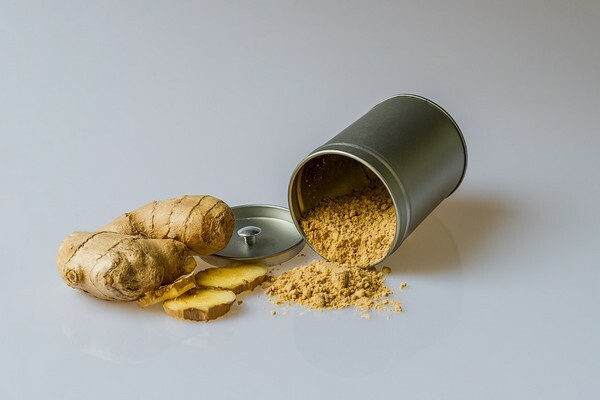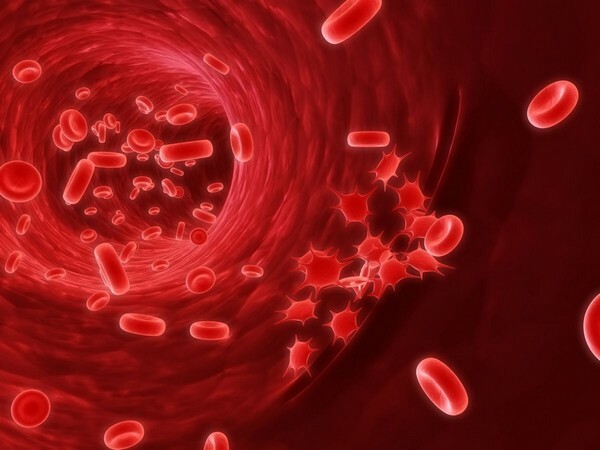There is an erroneous opinion that all herbal medicines have a soft effect on the human body and are absolutely safe. In fact, their therapeutic effectiveness is based on the biologically active substances entering into the chemical composition. And the use of infusions, broths and teas with a high concentration of essential oils and bioflavonoids can cause allergies and dyspeptic disorders. The fragrant roots of ginger are no exception. Treatment of colds, gastritis, endocrine pathologies with this plant often has undesirable consequences. Undoubtedly, it is more useful than harmful ginger, but it should be used with great care.

. When it is necessary to give up ginger
The presence of a huge amount of essential oils in the spice makes it possible to use it in the therapy of dyspeptic disorders - nausea, bouts of vomiting, flatulence. But in people with ulcerative lesions of the stomach or erosive gastritis, a cup of ginger tea will only worsen digestion, and sometimes it will cause a relapse. A useful plant also stimulates the separation of bile, increasing the functional activity of the gallbladder. But if in this organ of the digestive system there are stones, then they will begin to move under the influence of organic acids and phytoncides. Departure of a large bile calculus with sharp edges will provoke dangerous damage of ducts and( or) blood vessels.
Warning: Exceeding the amount of ginger tea or infusion drunk during the day will upset peristalsis and digestion even in a healthy person. Using spicy roots in the treatment of colds or beriberi, one should adhere to the daily and one-off dosages recommended by the attending physician.
The unique composition of the plant determines not only its benefits, but also contraindications for use. What is the harm of ginger for the body of adults and children:
- Ulceration of the mucous membranes of the digestive tract. Frequent and inexpedient use of tea can disrupt the integrity of the internal wall of the stomach and provoke the development of gastritis or ulcers;
- Increased activity of liver cells. In some cases, this seemingly beneficial effect of ginger can cause harm, especially if the hepatocytes are badly damaged. It is necessary to refuse the use of phyto-drugs for cirrhosis or acute forms of hepatitis;
- Increased bleeding of any site. Ginger is used in folk medicine to reduce the viscosity of blood. If there is hidden bleeding in the human body, the tea from spicy roots will strengthen its severity, which can lead to a life threatening to a person.
Infusions and decoctions from the roots of ginger - an effective preventive tool against the formation of malignant and benign tumors. But with already diagnosed malignancies, therapeutic drinks are categorically prohibited. Ginger accelerates metabolic processes, and this can provoke increased fission and growth of mutated cells.

For whom ginger is dangerous
Gynecologists often recommend that women in the early stages of pregnancy drink ginger tea to stop clinical manifestations of toxicosis. Biologically active substances from the composition of a spicy plant prevent the development of nausea and vomiting, stabilize the psychoemotional state of the future mother. But in the second and third trimesters of pregnancy, the use of tea from ginger should be discontinued. Bioflavonoids and phytoestrogens have a negative effect on the tone of the smooth muscle of the uterus, and this is fraught with premature birth or miscarriage.
During the gestation of a child in a woman's body, not only the hormonal background changes, but also the speed of metabolic processes. If before the conception the use of ginger tea brought only benefits, then in a state of pregnancy the drink will show all its side effects. The use of ginger infusions must necessarily be agreed with the gynecologist.
Recommendation: Drinks from spicy roots have the ability to increase blood pressure, so hypertensive patients should not include them in their diet. If this recommendation is violated, the risk of stroke, heart attack, ischemic heart disease increases.

Children and adolescents
Ginger tea is a great help for respiratory diseases of bacterial, viral and fungal origin. It destroys harmful microorganisms, removes them from the respiratory tract. In most cases, bronchitis, angina, sinusitis occur against a background of sudden temperature rises. And with hyperthermia, the use of ginger tea is extremely dangerous. It will not only raise the temperature due to its ability to thin the blood, but it can also provoke hemorrhages, including in the brain. It is unequivocal to answer the question of whether ginger is harmful for respiratory infections, since much depends on its correct application. Pediatricians are not advised to give any drinks with this plant to children under two years of age.
Women breastfeeding
Ginger during lactation is best excluded from the diet, despite the high content of vitamins and trace elements. Essential oils of plants often provoke the development of an allergic reaction. A person develops dyspeptic disorders, redness and rashes on the skin, there are problems with breathing. Despite the fact that the lactating mother does not have allergies to ginger, she can have a baby.
Warning: Along with the mother's milk, essential oils and tanning substances of ginger penetrate the baby's body. They can cause bloating, painful colic, a disorder of peristalsis.
